
Konya Shamsrumi: What is the process of writing a poem like for you? Is it a lot of hard work or easy?
Ahmed Maiwada: The first step for me is what I can call the trigger step. It is what sets in motion the entire process, which may result in a poem. There must be that one voice from deep in my heart that tells me “It is time”. As a matter of fact, I know that voice to come from many beings ranging from “The Devil” to “the Holy Spirit”. There is a long list of what constitutes each of these two. For instance, The Devil could be an armed robber, which includes an extortionist policeman, a corrupt politician, a corrupt civil servant, a false prophet – also known as Man of God, Apostle, Daddy General Overseer, who sells the free Gospel or healing to find his personal prosperity – to a religious bigot (such as Shekau or his Boko Haram group), an ethnic bigot, a President or a nation that makes a habit of bullying other nations or its own people. All these can be The Devil. The Holy Spirit, on the other hand, could be a line in a song that may be Sexual Healing or Amazing Grace, the voice of a nun or a harlot, a dream or nightmare, any form of sound or image, the heavenly bodies or things fabricated on earth. I need to add that, in-between The Devil and The Holy Spirit triggers, there exists a galaxy of others that could set me off on the course of a poem.
Once the trigger pulls and a line or two are trapped on a notepad or the mind, then the process of creating a poem would have been started. This is the next step, to write the line, or lines, down. I have found myself rising up from the bed and/or diverting my attention from the steering wheel of the car I’m driving in order to grab a piece of paper (these days it is my cell phone) to trap such a thought down. I could proceed from there to have my first draft of the poem started. Otherwise, I could just leave the line or lines there in a place I call Scraps, which is the universe into which all are born and from where each might aspire, by some self-determined purification processes similar to that in some works religions, to a higher realm of being. Any line that achieves such a purification by growing into a first draft of a poem, or a promising stanza or two of a longer poem, such is promoted to a sort of heavenly place for my poems that I call the Nursery. Here, those glorified souls must continue on their aspirations towards a higher realm, which is the ultimate—a collection/poetry book.
I do not know how to write poems that don’t connect to each other at any particular time. Therefore, those poems in the Nursery must aspire to fit into the next collection/poetry book I would be working on, else, they are gathered up and sent to eternity in their own type of hell fire: utterly destroyed, with all the work that went in to bringing them into being to that level of purification.
The interesting thing for me is that hard work has never been a part of my poem-creation processes. I wouldn’t also say it is easy, because there has never been a poem I finished which didn’t present me with tonnes of words, pressed down and shaken together for me to empty out and choose the best ones that suit each particular poem. It is neither hard work nor an easy one to write a poem. I would rather say that writing any poem is an interesting process, and the longer time I take in writing the harder it is for me to promote it unto maturity. I like looking at my scraps every now and then, every time trying to see if any one needs a pruning or a redirection or a change of one thing or another. I name that second to the final level of purification for my poems “nursery” because, of a fact, I do see my first drafts as newly-hatched chicks that require close attention and nurture, so they could grow.
Konya Shamsrumi: Please describe your sense of identity in this or any possible world in imagery or metaphor.
Ahmed Maiwada: I am a created being. I believe in the Creation Theory, which makes me see myself as a descendant of Adam and Eve. Being so extracted, I am by nature first human, like all other humans, before I am identified as an indigene of any particular place or a citizen of any particular nation. As a human, I am a grossly flawed creature, though custodian of earthly treasures. As a human, I know that I possess higher intelligence than all non-human beings. Therefore, I feel a sense of place to dominate all lives outside humanity, but without having to be cruel about it. My gender is male, and I do not see a need for changing that. My sexuality doesn’t define me, and so I keep it personal and private. I respect all females, and do think the opposite sex is not inferior, but a wonderful variant of my gender. I believe in the equality of all people. I don’t see myself as inferior to anybody, much as I do not regard myself to be inferior to anyone. For the avoidance of doubt, I do not see a difference in a man’s race as anything but a form of diversity that simply aids one man to adapt more to his natural environment and so to live in perfect harmony with his immediate surroundings. I look towards associating with fellow human beings of like understanding, while I wish those holding dissimilar views to one day come to that point when their switches suddenly flick on to usher the light into their beings on this very truth: that all humans are the same different people scattered across the earth and equipped with diverse tongues and many other features suitable for their adaptations.
Nonetheless, I am aware that this ideal is so far-fetched. Therefore, when I consider myself living in this evil world, where man devours his fellow men or gets devoured by them, the only image that comes to mind is that of fish. I do often see myself as a fish, swimming in a large water, among other species of fish of different sizes. In this swim, which resembles our existence, anything could happen to any fish. A mighty jaw could clamp down with you inside it and the next thing is that you’re being crushed into pieces and juices. It is a precarious condition, being you, living in this world. But then, one must learn to adapt to the environment, by being alert to all dangers one could handle at one’s level. The bigger dangers that might come, in form of wars and the like, might or might not flee at the sound of your prayers. There is no such guarantee. And that’s why I make my own efforts, particularly in the body of my poetry, to draw the attention of all fellow fish in this earthly pond we’re swimming in, that starting that bigger danger called war doesn’t necessarily result in safety for those who started it. The water is so word with waves or currents over which the fish have no control. That very danger the foolish fish has triggered might turn directly back at the fish along with those waves or currents not subject to that fish.

Konya Shamsrumi: If any of your poems could literally save a person’s life, which poem would it be and can you describe the person whose life you think it would have saved?
Ahmed Maiwada: Many of my poems could save lives, if well studied and understood. But I am to mention just one, which has to be my poem titled “Eye Rhymes”. It is a long poem, making up my entire third published poetry book. The person’s life it could save is Mr. Book. Several books are hacked down and killed and left without any decent burial by butchers and gun totting criminals masquerading as editors, critics or even literary judges, especially in this part of the world. I was glad to stumble across the views of John Milton that seem similar to mine on the fact that books have life and could fall victims of murder. In fact, Milton subtly inflated this view by first stating that when a book is killed it amounts to the death of “reason it selfe”. At some point it could be graduated to the blasphemous state of the death of the “image of God”. Then, could be a murder, homicide, martyrdom, and finally, a massacre of the human spirit “whereof the execution ends not in the slaying of an elementall life, but strikes at the ethereal and fift sense, the breath of reason it selfe, slaies an immortality rather than a life.”
I wrote “Eye Rhymes” knowing that no book could read it. But, I intended the contents for the armed criminals roaring like a lion and going about seeking which book they could steal from, or kill, or destroy. I believe any murderer of the book, who takes the time to study this poem should emerge from the experience in sack cloth, with a contrite heart and resolved to repent of his evil ways and desist from any further act that could result to even the slightest scratch on the skin of the book.
Konya Shamsrumi: What does Africa mean to you, as potential or reality?
Ahmed Maiwada: As a one-time student of Geography, Africa means to me the land mass spread by God, south of Europe, in-between the Atlantic Ocean and the Indian Ocean. It is the only land mass I know to have a horn. It has been divided over a long period of time into many nation states. Also, as a student of History, I have studied the histories of diverse peoples native to this land mass who have existed or continue to exist on the continent. Majority of these peoples have darker skin colours, while a minority from among those living in the northern parts of the Continent do have a lighter shade of skin colour. These peoples, by themselves or in their several intercourses with other people from within and outside the continent, have done several mighty things that have helped in shaping and reshaping the demography of the continent, much as nature also has done likewise. Therefore, by geographical and historical accounts that abound, Africa is indeed a reality. It exists. I have lived to read about several events ranging from wars to famine to natural disasters to political crises that are said to have occurred on the African continent. I have also seen several, television images. I can say that Africa is a reality, that it truly exists. But it exists in fragments that are being administered by different systems of government, each with a history rooted elsewhere outside the continent. The issue is: should this fragmented Africa be unified under one system of government? If yes, what are the potentials for realising such a dream? Talking truthfully, I don’t see the need for this dream to be realised. I don’t see potential in this either.
Africa has many histories, as indeed is the case in the entire histories of man, where land mass alone is not enough centripetal force to bind people together. Long before the advent of colonialists on the African Continent, there had been many wars and revolts in all the expanse of land currently forming the African continent. The colonialists, divided along national and other interests, have added further centripetal forces into our already weakened treatises and bonds, to the extent that land mass is the only thing that we have in common, as Africans. Even at that, our environments differ greatly, for example, the desert in the northern parts is completely a different world from the rain forest of West Africa. Our natural resources differ. As our histories are not the same, so also our cultures. And then, the prevailing tendencies in Africa now are more favourable to further fragmentations of even the existing small units into even smaller units, as proto- states agitate within existing countries, under the strong influence of regrouping around more common histories, demanding autonomy or independence. All these do not afford a realistic thinker the rational luxury of dreaming of a potential Africa as a unified entity.
We are too fragmented to bond as one. And I think we should remain as we are, as different nations under an African Union, independent of each other and cooperating with each other on that premise.
Konya Shamsrumi: Could you share with us one poem you’ve been most impress or fascinated by? Tell us why and share favourite lines from it.
Ahmed Maiwada: Okay, this is quite tricky and difficult for one like me who has encountered poetry right from Primary School, not only in English but in Hausa Language as well. My sentiments have also changed over the past years. For instance, I have adored William Wordsworth and Gabriel Okara, and have held them as the world’s best, while I studied them back in school. Then my scope got expanded. And with each expansion, a new poet’s works got enthroned as kings of my heart. It would have been easier if this question requires from me “one poet” rather then “one poem” I’ve been most impressed or fascinated by, even as the same question would still have been a very difficult one to attempt. Nonetheless, I would let my present mood go with “Thirteen Ways of Looking at a Blackbird” by Wallace Stephens.
Why am I most impressed or fascinated by this poem? As a poet myself, I seem to favour poetry that is by nature anorexic and inviting many levels of meaning. The more the diction of a poem is stripped down to the barest minimum the more such a poem is valued by me. This poem by Wallace Stephens comes as the best of this sort. It is a showroom piece in this regard. I love it for its democracy, by which I mean its openness to diverse meanings, or even no meaning at all. The author claims that the “poem” is not even “a poem”, but a “group of poems”, numbering one to thirteen, with each group presenting a different side of the blackbird. He claims that he intends by the group of poems not to present a collection of ideas, but sensations. Meaning that the reader shouldn’t even consider searching for any meaning from them at all. Many critics are divided about this, with some disputing the writer’s claim about it being a “group of poems”. This group insist that the poem is indeed just a “poem”, with “something instantaneous and minimalist” about each of its thirteen stanzas.
Stephens disputed any haiku influence in the poem(s), while many critics insist that, though the thirteen stanzas are not true haikus, they do indeed carry much the same intention, as they contain one or two images that are activated or connected by an idea. There are so many more interesting divided opinions about this poem(s), which in my opinion raises “Thirteen Ways of Looking at the Blackbird” to such a high pedestal that I cannot help but point to it as the number one poem in the whole world for me. What does “blackbird” symbolise, which is mentioned in each of the thirteen stanzas? Is the poet giving us images of thirteen different blackbirds or is he painting just one blackbird in thirteen different ways? What meaning can we truly get from the poem(s), or is the poet true that the poem(s) can only yield to us sensations?
As I’ve said, the best poems are the ones capable of more than at least one interpretation, and the more levels of meanings a poem is likely to yield the more its weight in solid gold. “Thirteen Ways of Looking at a Blackbird” is capable of up to thirteen different levels of meaning. And, that is by far more than any other poem I’ve seen.
All the lines of the poem(s) are my favourites. However, let me just share these few lines/stanzas:
I
Among twenty snowy mountains,
The only moving thing
Was the eye of the blackbird.
II
I was of three minds,
Like a tree
In which there are three blackbirds.
V
I do not know which to prefer,
The beauty of inflections
Or the beauty of innuendoes,
The blackbird whistling
Or just after.
XIII
It was evening all afternoon.
It was snowing
And it was going to snow.
The blackbird satIn the cedar-limbs.
Ahmed Maiwada is one of the leading voices in contemporary Nigerian literature. Based in Abuja where he practises law, Maiwada gained attention with his two collections of poems, Saint of a Woman and Fossils, and further acclaim with his novel, Musdoki. His most recent collections are Eye Rhymes and We’re Fish.






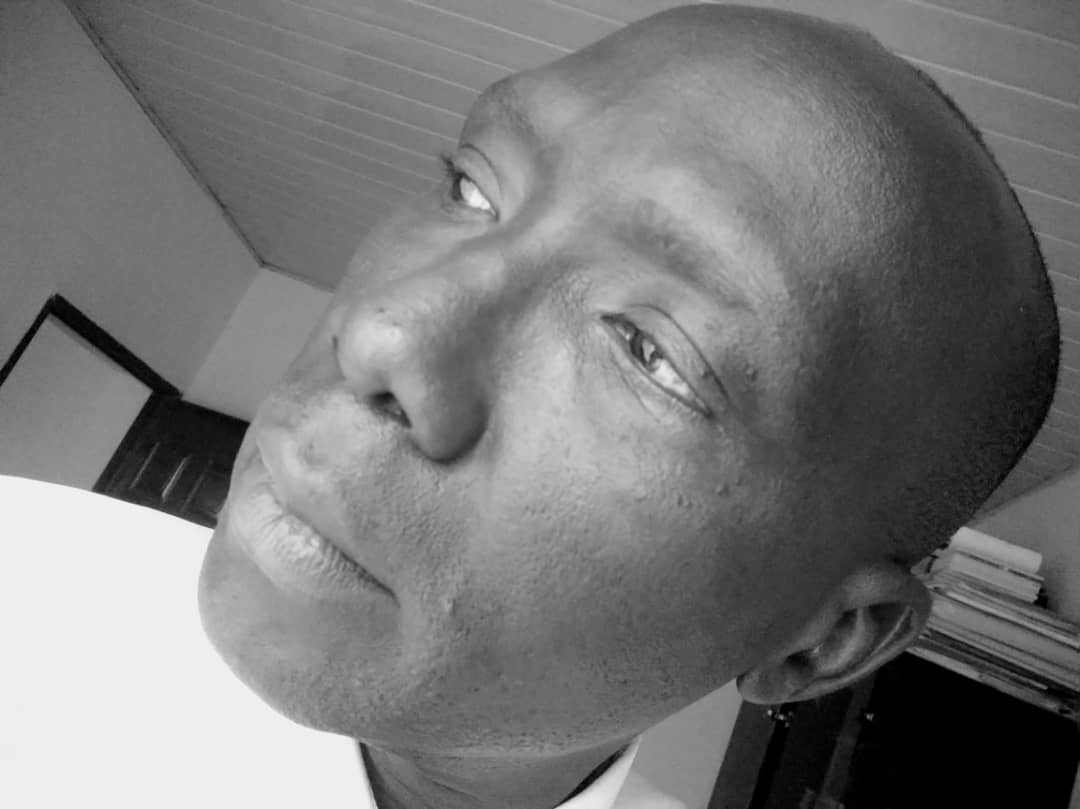
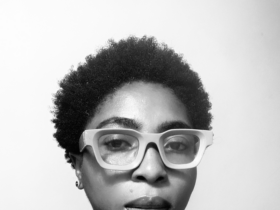
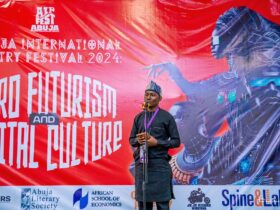
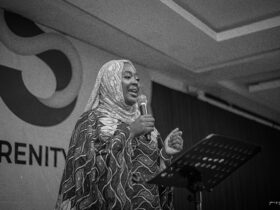
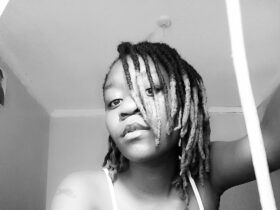
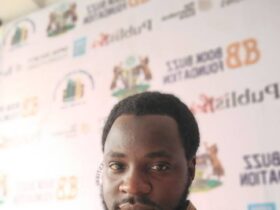

Leave a Reply